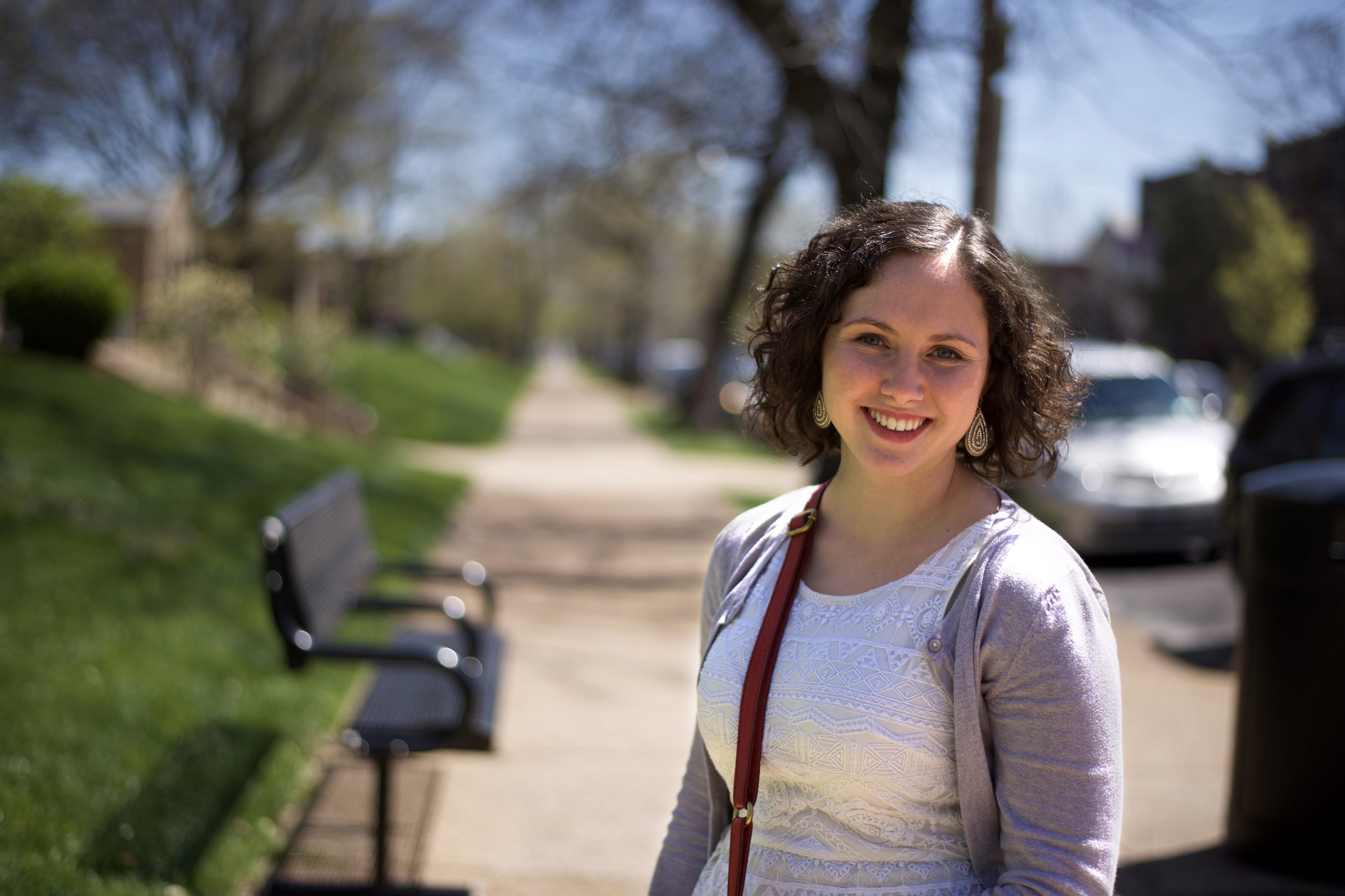Reading time: 4 minutes
Maryville student Rachael Huck is the kind of person that people talk to. Really talk to. When friends are stressed out over an exam or struggling with relationship problems, they can count on Huck to listen. And she’s not shy about advising friends to see a counselor.
Huck is a psychology and sociology major, and this year, thanks to a sought-after grant from international honor society Psi Chi, she will study the reasons why some students take advantage of professional help while others struggle alone.
She received the $5,000 award in April to investigate how a college student’s willingness to use mental health services relates to their overall mindset. She plans to utilize work by Carol Dweck, PhD, a leading research in the field of motivation, who coined the termed “mindset” in this sense: A “fixed mindset” assumes that traits like intelligence and personality are more or less inflexible. A “growth mindset” is illustrated by the belief that we can strengthen and change our abilities.
Huck believes these two different outlooks are in play when it comes to seeking treatment.
“If someone with a fixed mindset has depression or anxiety, they think, ‘I’m stuck with that; there’s not much I can do to change it,’” Huck says. “A person with a growth mindset says to themselves, ‘I can work on this and take steps to make it better.’”
Huck learned about the Psi Chi grant opportunity from Brian Bergstrom, PhD, assistant professor of psychology, who worked with her to craft the application. This fall, they hope to launch a correlational survey to determine where students fall in the mindset categories, and their general willingness to seek help.
“I want to be in a position to help people get through whatever is happening to them, to provide them with the skills and support they need to achieve greater mental health.” – Rachael Huck
“What I think I’m going to find is that students who have more of a growth mindset will be significantly more likely to seek mental health services,” Huck says. She plans to recruit Maryville students and possibly students from another local university.
To assess mindset, students will be asked how strongly they agree or disagree with statements such as: “People have a certain amount of anxiety and they can’t do much to change it.”
“These questions are simple but deceiving, with a high validity,” Huck said. “But the questions about one’s inclination to seek help are a little more complicated.”
For that component, Huck will use a set of queries already developed by previous researchers. Students will be asked how much they agree or disagree with statements like: “There are certain problems that shouldn’t be discussed outside the family.”
Future Implications
One in five U.S. college students faces a mental health issue, according to the National Alliance on Mental Illness (NAMI). These include depression, anxiety, substance abuse and eating disorders.
Maryville University provides students with free counseling. In recent years, the Office of Personal Counseling has expanded the number of ongoing programs with meditation, recovery for addiction, and body pride groups. During the past decade, the number of student visits has risen by 88 percent, says director Jennifer Henry.
“We have seen anywhere between 825 to 950 counseling sessions per academic year,” Henry says. She credits the increase to growing enrollment, but also greater awareness.
Young adulthood is a time when many mental health issues begin to emerge, according to NAMI. It’s a period when students face many new experiences, such as “going to college for the first time, having relationships, and becoming more independent,” Huck says.
Testing her hypothesis is only the beginning of Huck’s endeavor. She also wants to conduct further research to determine whether the way people look at life may be malleable.
“A subsequent study might examine how to potentially manipulate the mindset, which could lead participants to be more willing to seek mental health services,” Huck says.
She plans to attend graduate school after earning her degree in December. Her ultimate goal is to assist people as they try to achieve their highest possible level of mental health.
“I want to be in a position to help people get through whatever is happening to them, to provide them with the skills and support they need to achieve greater mental health,” Huck says.
This story also featured in the Fall 2016 edition of Maryville Magazine.
 RachaelHuck.H 1
RachaelHuck.H 1